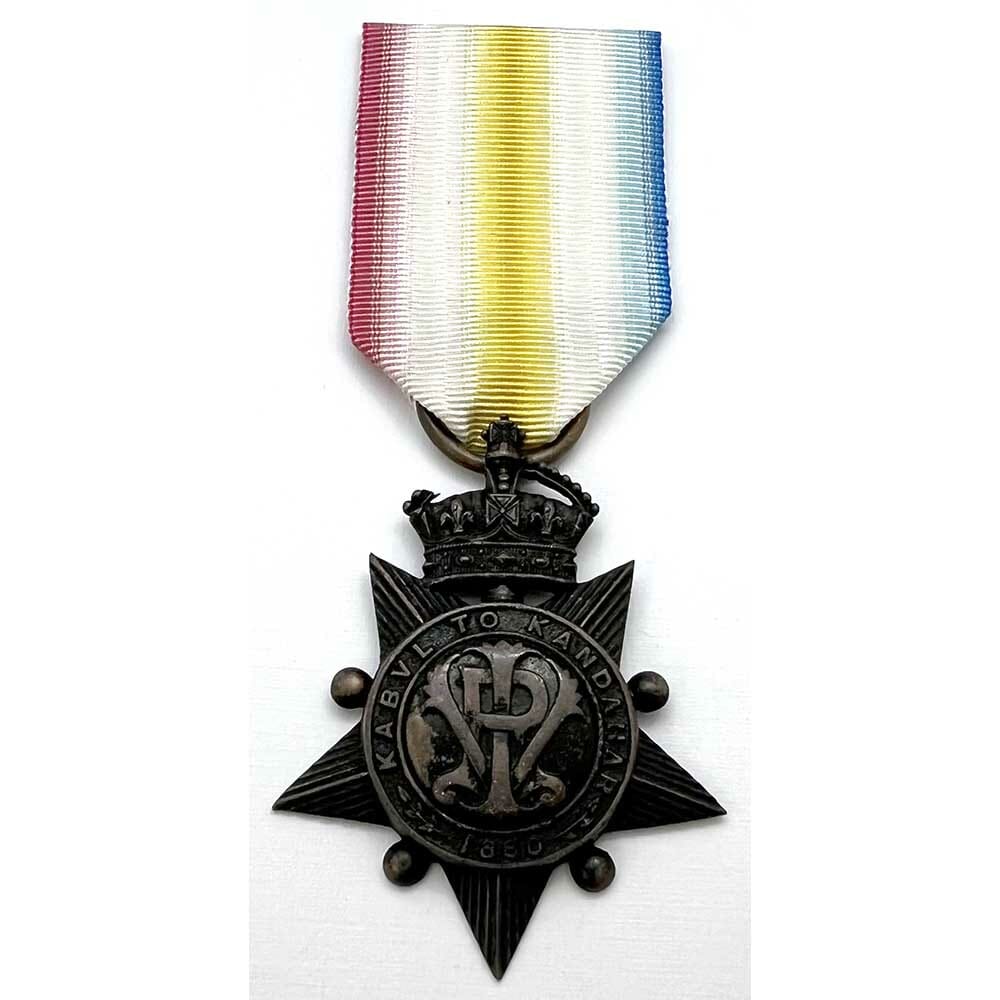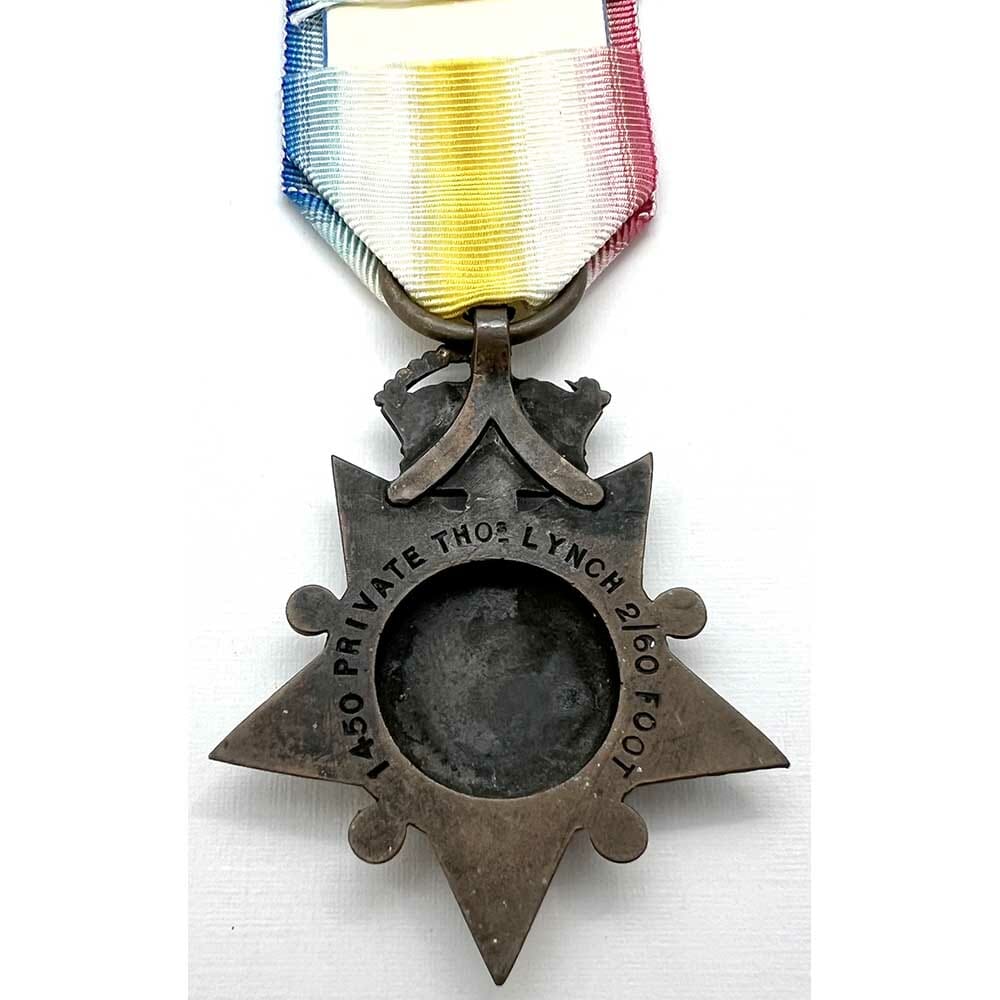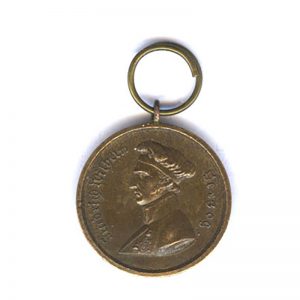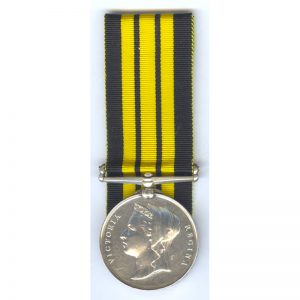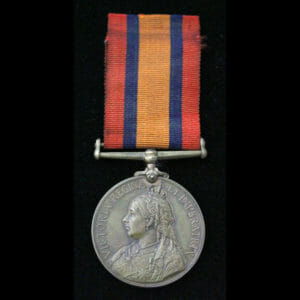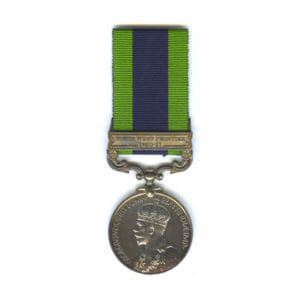Description
Kabul to Kandahar Star, 1450 Private Thomas Lynch, 2nd Battalion 60th Regiment of Foot.
Officially impressed to reverse: “1450 Private Thos Lynch 2/60 Foot”
Some slight damage to top left of crown.
Thomas Lynch was born in the Parish of St Ann, Shandon, Cork, Ireland.
At the age of 18 he attested for service on 16th May 1867,
Saw the following service:
Home, 16th May 1867 – 13th Sept 1867
India, 14th Sept 1867 – 9th Dec 1878
Afghanistan, 10th Dec 1878 – 7th Octr 1880
Mari Country, 8th october 1880 -14th Novr 1880
India, 15th November 1880 – 24th January 1881
South Africa, 25th January 1881 – 11th January 1882
Home, 12th January 1882 – 1st February 1883
India, 7th February 1883 – 27th November 1888
Home, 28th November 1888 – 10th December 1888.
During his time in South Africa from 1881-1882 the regiment fought in two battle including the disastrous battle of Majuba Hill.
His time in the “Mari Country”:
On the 8th of September the 2nd Battalion left Kandahar to take part in the Mari Expedition, which lasted for two months and entailed much hard marching; there was not, however, any fighting.
On the termination of the campaign the Commander-in-Chief in India published the following General Order:
“The 2nd Battalion 60th Rifles has throughout the war maintained its high reputation for efficiency. In the march from Kandahar to Kabul, at Ahmad Khel, in the memorable march from Kabul to Kandahar, and the subsequent expedition to the Mari country, the 60th Rifles were remarkable for their discipline and marching powers. In the operations above described the Regiment marched 1000 miles in 100 days. No light feat anywhere, but in such a country as Afghanistan it is one well worthy of record in the annals of the British Army.”
